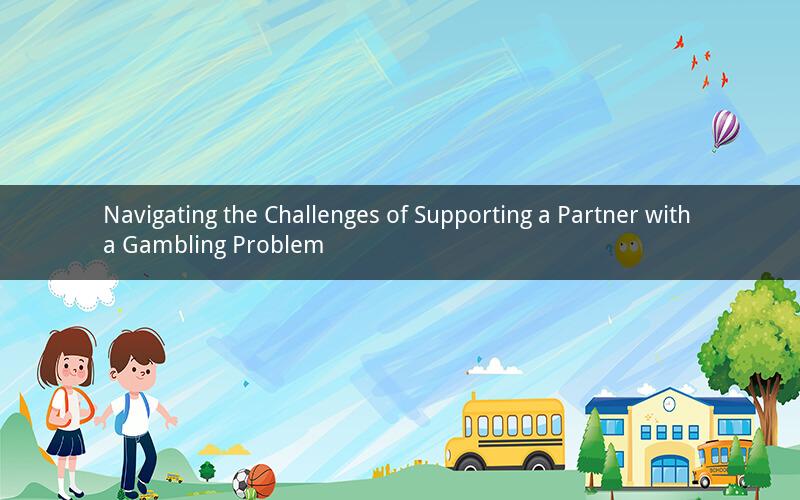
1. Understanding the Problem
Gambling addiction is a serious issue that can impact not only the individual with the problem but also their loved ones. Recognizing the signs of a gambling problem is the first step towards addressing it. Look out for the following red flags:
- Secretive behavior
- Borrowing money to gamble
- Missing work or social events due to gambling
- Financial strain
- Emotional turmoil
If you suspect your partner has a gambling problem, it's important to approach the situation with empathy and support.
2. Educating Yourself
Educate yourself about gambling addiction to better understand the complexities of the issue. Learn about the different types of gambling addictions, the stages of the addiction, and the impact it can have on relationships. This knowledge will help you to offer more informed support to your partner.
3. Encouraging Open Communication
Open and honest communication is crucial in addressing a gambling problem. Encourage your partner to share their feelings and thoughts about their addiction. This may be challenging, but it's important to create a safe and supportive environment where they feel comfortable expressing themselves.
Remember to listen actively, without judgment or criticism. This can help your partner feel validated and understood, which is essential in the recovery process.
4. Encouraging Professional Help
Professional help can make a significant difference in overcoming a gambling addiction. Encourage your partner to seek out therapy or counseling from a mental health professional who specializes in gambling addiction. Therapy can help them develop healthier coping mechanisms and strategies for dealing with triggers.
In some cases, attending support groups such as Gamblers Anonymous can also be beneficial. These groups provide a safe space for individuals struggling with gambling addiction to share their experiences and support one another.
5. Managing Financial Strain
A gambling addiction can lead to significant financial strain, which can put additional pressure on your relationship. It's important to take steps to manage this financial burden, both for your partner and for the relationship as a whole.
Encourage your partner to create a budget to track their spending and manage debts. This can help them to regain control over their finances and work towards stability. Consider seeking the assistance of a financial advisor to help you both navigate the complexities of your financial situation.
6. Supporting Your Partner's Recovery
Supporting your partner's recovery is an ongoing process. Be patient and understanding, as the road to recovery can be challenging and unpredictable. Here are some ways to support your partner:
- Attend counseling sessions with your partner to learn more about their addiction and how to better support them.
- Encourage your partner to stay committed to their treatment plan, including attending therapy sessions and support group meetings.
- Help your partner develop new hobbies and interests that can replace the time and money spent on gambling.
- Continue to be patient and empathetic, even when progress seems slow or setbacks occur.
7. Taking Care of Yourself
Supporting someone with a gambling problem can be emotionally and physically taxing. It's important to take care of yourself during this challenging time. Here are some tips for maintaining your own well-being:
- Seek support from friends and family members who can provide you with emotional support.
- Practice self-care activities that help you to relax and de-stress, such as exercise, meditation, or spending time in nature.
- Consider seeking professional counseling to help you cope with the stress and emotional impact of supporting your partner.
- Remember to set boundaries and protect your own well-being, ensuring that you have time to take care of yourself and pursue your own interests.
By following these steps, you can help your partner navigate the challenges of overcoming a gambling addiction. While the journey may be difficult, with patience, support, and understanding, it's possible to overcome this issue and rebuild a stronger, healthier relationship.
Questions:
1. What are the signs of a gambling problem in a relationship?
Answer: Signs of a gambling problem in a relationship may include secretive behavior, borrowing money to gamble, missing work or social events due to gambling, financial strain, and emotional turmoil.
2. How can I encourage my partner to seek professional help for their gambling addiction?
Answer: You can encourage your partner to seek professional help by educating them about the benefits of therapy, sharing stories of others who have overcome their gambling addiction with professional support, and emphasizing the importance of their recovery for the relationship.
3. What can I do to help manage the financial strain caused by my partner's gambling addiction?
Answer: To manage the financial strain caused by your partner's gambling addiction, you can encourage your partner to create a budget, seek the assistance of a financial advisor, and explore options for debt consolidation or counseling services.
4. How can I support my partner's recovery from a gambling addiction?
Answer: You can support your partner's recovery by attending counseling sessions together, encouraging them to stay committed to their treatment plan, helping them develop new hobbies and interests, and maintaining patience and empathy throughout the process.
5. What can I do to take care of myself while supporting my partner through a gambling addiction?
Answer: To take care of yourself while supporting your partner through a gambling addiction, seek emotional support from friends and family, practice self-care activities, consider professional counseling, and remember to set boundaries to protect your own well-being.